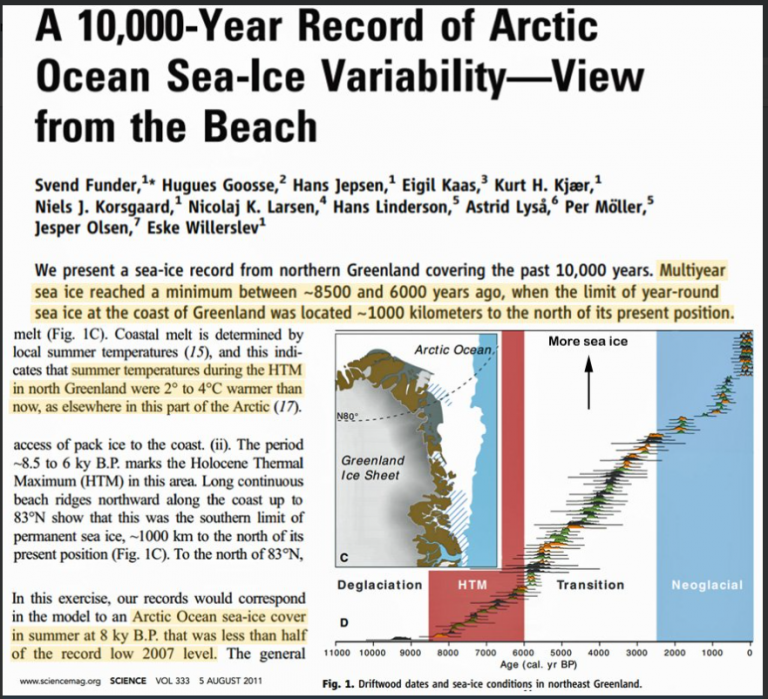At Twitter NoTricksZone’s contributor Kenneth Richard posted this paper appearing in the Journal Science in 2011.
The papers find that “summer temperatures during the HTM in North Greenland were 2° to 4°C warmer in this part of the Arctic.
Atmospheric CO2 concentrations back then of course were much lower than the historically very modest 410 ppm we have today.






From https://www.livescience.com/10956-polar-bears-evolved-150-000-years.html
So Polar Bears have been around a while and must have experienced times of very low ice volumes before. They have survived this long why should they not go on surviving, they are after all intelligent, adaptable, and tough beasts.